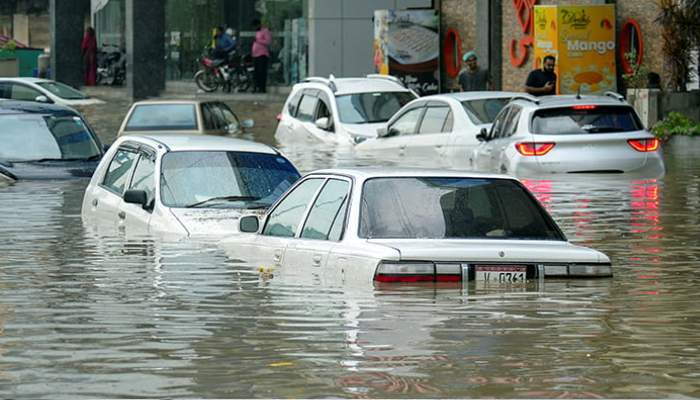Two days after heavy monsoon rains lashed Karachi, large parts of the city and Sindh province remain paralyzed by extensive power outages and severe waterlogging. Officials have warned that the next phase of the monsoon could inflict even greater damage, raising concerns about the city’s preparedness. While the Clifton Underpass has been reopened, most other key underpasses and roads, including the Korangi River route, remain closed to traffic, significantly disrupting daily life.
The most pressing issue for citizens is the prolonged loss of electricity. Residents in numerous areas, including North Nazimabad, Gulistan-e-Jauhar, and Orangi Town, reported being without power for 24 to 48 hours, with some outages exceeding 36 hours. This has led to a critical shortage of water in homes and sparked protests in frustrated neighborhoods. The crisis extends beyond Karachi, with Hyderabad’s Latifabad and Qasimabad also suffering extended blackouts.
K-Electric, the city’s sole power provider, stated that over 500 feeders tripped during the rain but claimed that power had been restored to 94% of the city. They attributed delays in restoring the remaining 100 feeders to immense waterlogging, which prevents their field staff and vehicles from accessing the fault sites. Meanwhile, Sindh Governor Kamran Tessori, after a late-night visit to affected areas, declared the electricity shortage the city’s biggest challenge, highlighting that families in Surjani were forced to sleep on rooftops to escape entering rainwater.
The human toll of the disaster was underscored by the tragic electrocution deaths of two young brothers in Natha Khan Goth. In response, the governor announced that the K-Electric managing director has been summoned for an urgent briefing. Governor Tessori stressed that while the immediate focus is on relief, a thorough investigation into the root causes of the systemic failure is imperative once the crisis abates, moving beyond simply blaming climate change.














